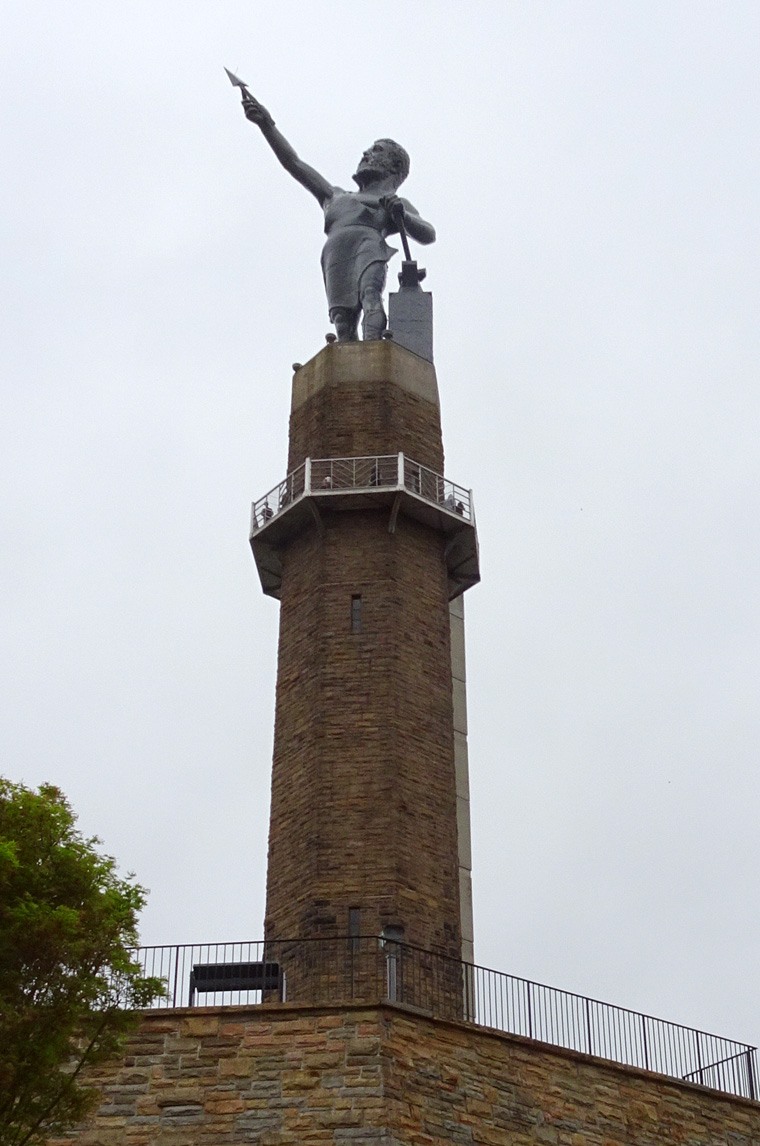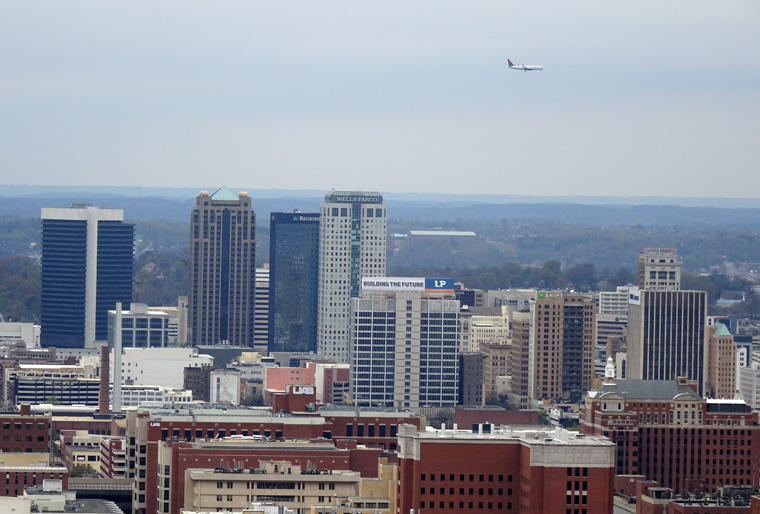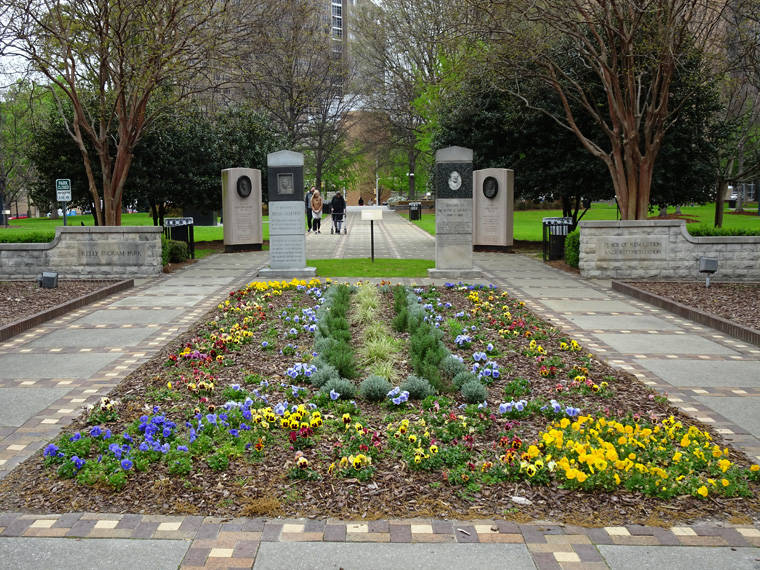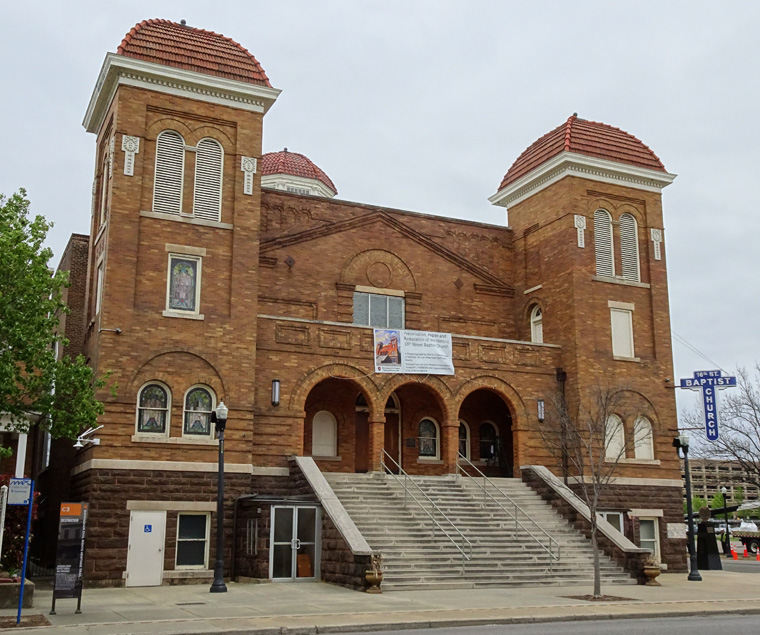I knew that most tourist attractions in Birmingham were closed on Mondays but I was able to visit some outdoor sites and then return to my hotel in the afternoon to figure out where I want to go during the rest of the trip.
After breakfast I headed just out of town to Red Mountain to see Vulcan which is the largest cast iron statue in the world. In some ways the statue symbolizes Birmingham as it was created to represent Alabama at the 1904 World’s Fair in St. Louis and advertised the industrial prowess of the area. Although both St. Louis and San Francisco wanted to buy the statue after the fair it was brought back to Birmingham to be publicly displayed. Getting a good photo is difficult because the statue is mounted on a high tower and climbing to the observation level only provides views of the city, not the statue. The Vulcan Visitor Center had excellent exhibits on the creation and display of the statue and also the history of Birmingham.
I then headed back into town to walk the route of the nonviolent civil rights marches organized in 1963 to protest against what Martin Luther King Jr. called “the most segregated city in the south”. Most of the marchers were high school students and the excessive reactions of the authorities in arresting thousands and using water hoses and tear gas drew international attention and condemnation. Later that year the 16th Street Baptist Church was bombed by the Ku Klux Klan killing 4 young black girls and injuring 22 others. This proved to be a significant catalyst in passing the Civil Rights Act signed by President Johnson in 1964.
No road video today.
The Vulcan statue is a symbol of civic pride in Birmingham.
It is located on Red Mountain, which was the source for much of the local iron ore, and offers good views of Birmingham. Unfortunately, the weather was cloudy, cold and blustery today.
The civil rights march route is marked along the way with various features recognizing organizers, participants and other prominent black leaders.
The 16th Street Baptist Church was reopened in 1964 after generous donations poured in from around the world 
